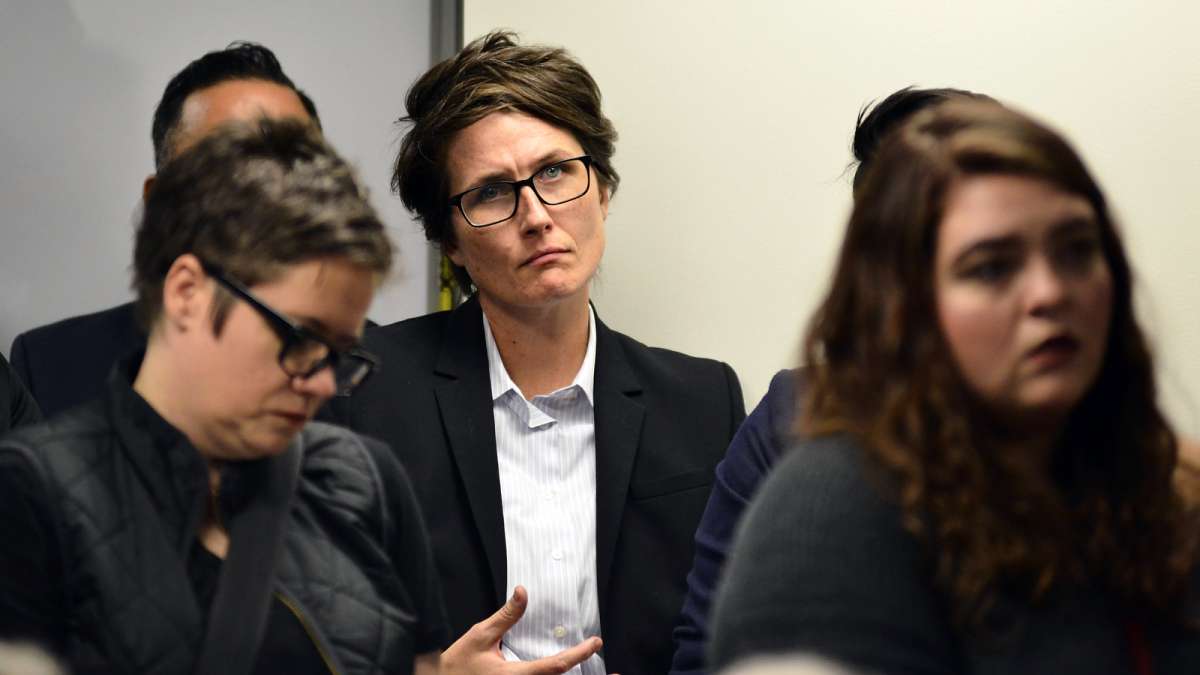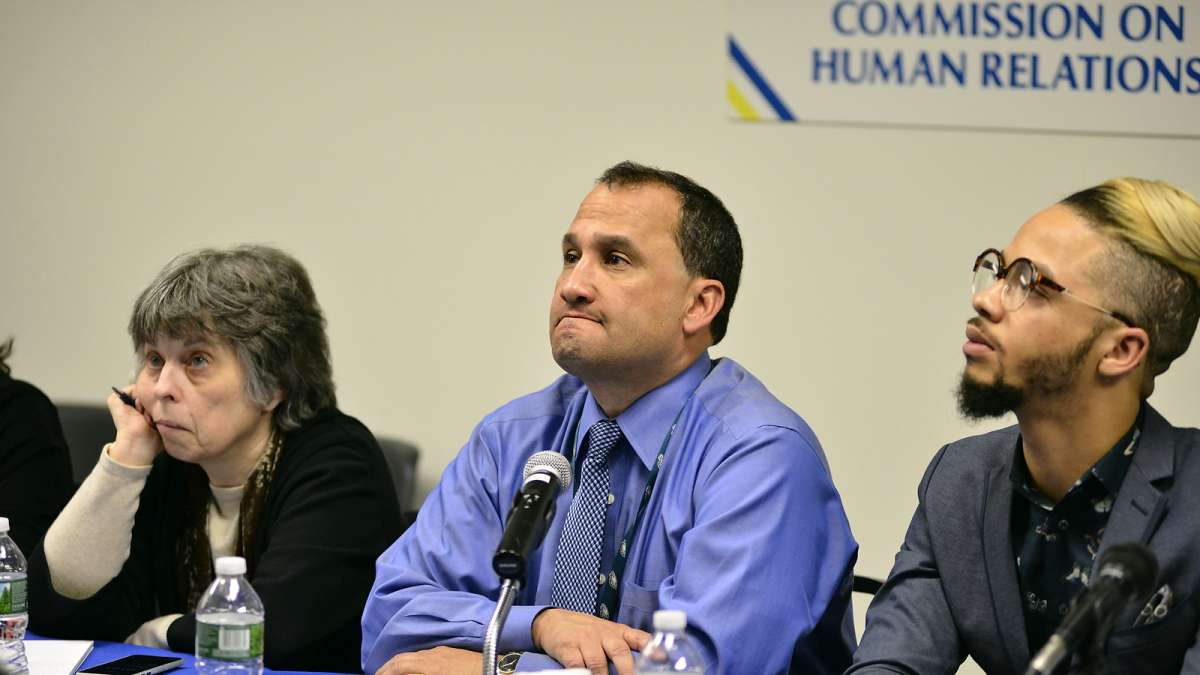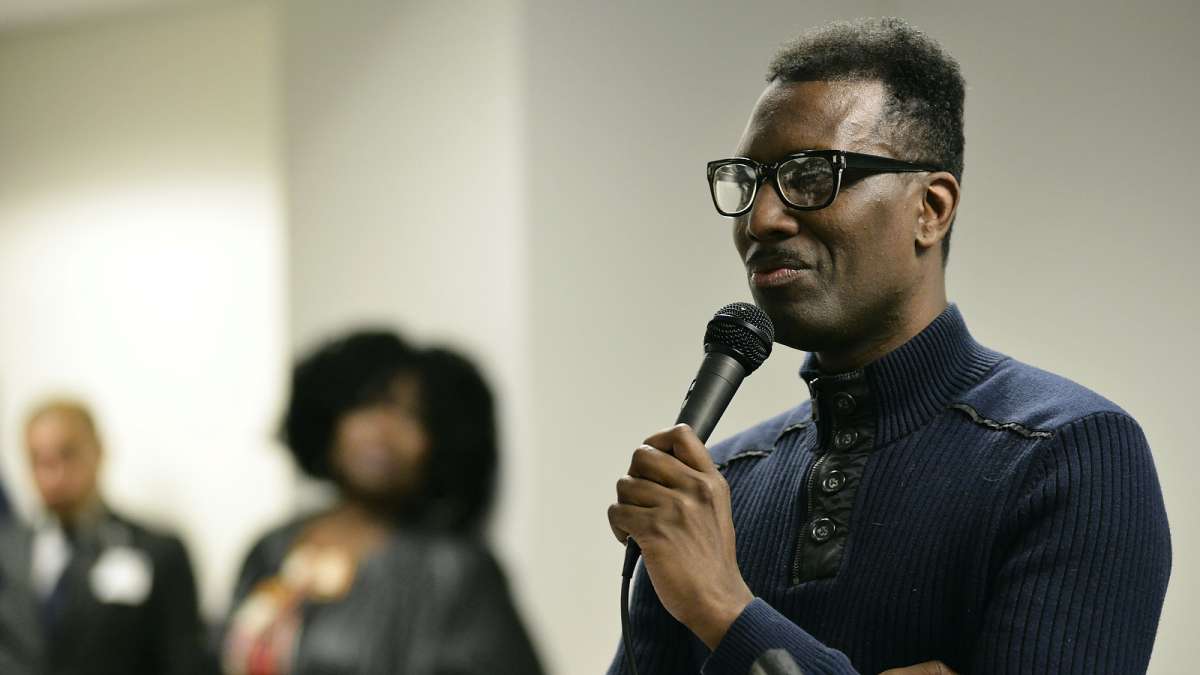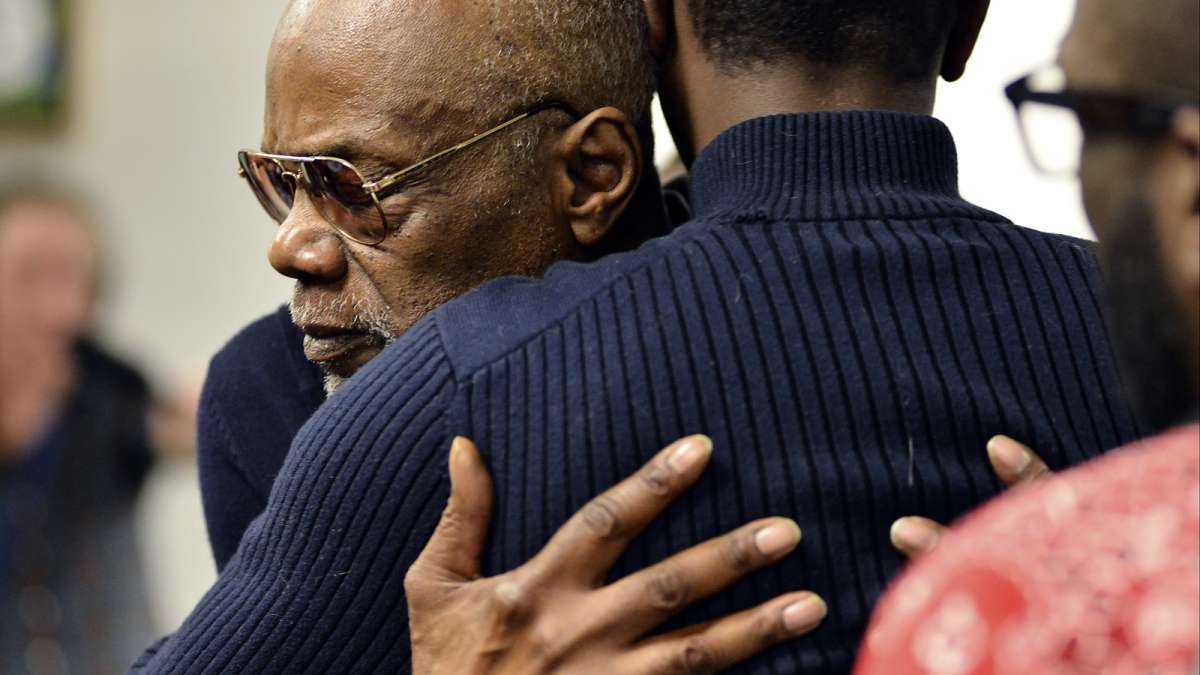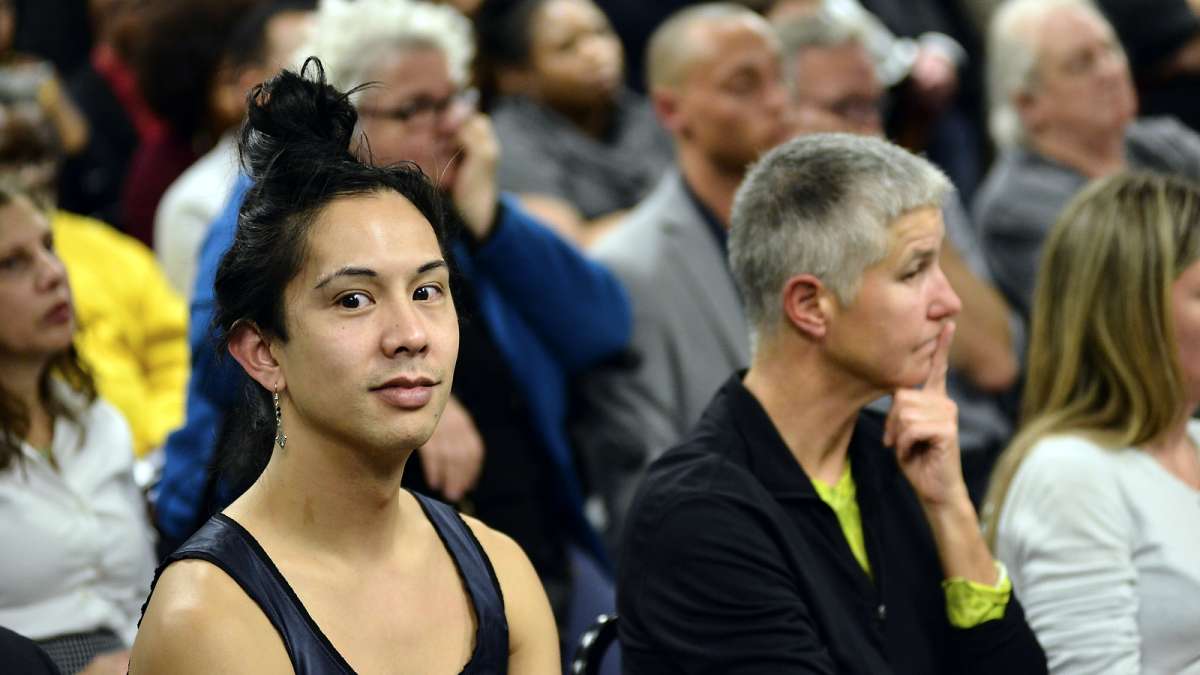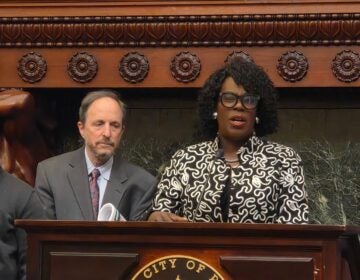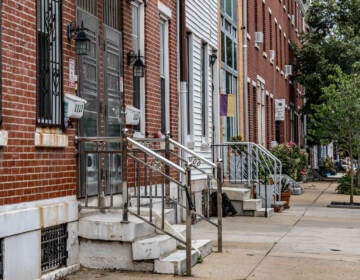Citizens air Gayborhood racial grievances for Commission on Human Relations action
Tuesday night, hundreds attended a public hearing on racism and discrimination in the LGBTQ community held by the Philadelphia Commission on Human Relations.
The turnout was the result of multiple protests surrounding Gayborhood bars’ dress codes that tend to target people of color, and racist comments made by the owner of iCandy, that went viral online.
Addressing a packed room, Commisisoner Thomas Earle defined the Commission’s jurisdiction under the city’s Fair Practices ordinance. It covers the use of public space for protected groups, which includes minorities and LGBTQ people. Commissioners recorded dozens of testimonies, and received several written statements, which will inform an official report with recommendations to address this issue.
Testimonies spanned the breadth of LGBTQ issues — lawyers, activists, clinical workers, and homeless people aired their grievances for the record. Eight bar owners, subpoenaed by the Commission to, either attended the hearing in person or sent representatives. City Councilmembers, the Office of LGBTQ Affairs, and Mayor Kenney also attended.
Many spoke of a report, made by a coalition of LGBT groups 30 years ago, that identified and suggested solutions to discrimination in Gayborhood bars. Sandy Smith, who lead the survey as part of Men of All Colors Together, asked bar owners about admission, cover charges, and dress codes. “We found very few instances of clear discrimination,” said Smith. “But what we did find was a pattern of exclusivity — where certain establishments did things to make it more comfortable for some groups of people and less so for others.”
Tyrone Smith hopes that this time there will be change.
“You know, I’m old. I’m in my seventies,” Smith said. “And to have to confront this again in my life. I’ve lived through the dog-biting days. I’ve lived through the two bathrooms. And I’ll be damned if I see it again. I have faith in the youth of Philadelphia, who are black and brown, that this will end.”
In a statement, Jeff Sotlin, the owner of the club Tabu, expressed his empathy toward LGBTQ people of color seeking a fun and safe space, and agreed that the Gayborhood is overdue for a culture change. “I am by no means using the words ‘relax’ or ‘patience’ or ‘wait.’ I think those words have been used, exhibited, and lived for many years. We as a community need to come together now, and make an impact.”
ICandy wasn’t the only club taking the heat for discrimination. Woody’s was also cited as a place where people of color experienced dress codes, unnecessary questioning for ID, and long waits at the bar for a drink. Co-owners and brothers Bill and Michael Weiss attended the hearing.
“We’ve actually been to three meetings before this, so I want to be clear that the subpoena is not what brought us here,” said Michael. They both denied that the club has ever had a dress code, and that if patrons experienced these questions, it was the result of individual employees, not upper management.
Suggestions offered by the community included multiple parties deciding on benchmarks for inclusion at local businesses, with timelines that are enforced by fines. Rue Landau, director of Human Relations Commission, said, “Some issues might be violations of the fair practices ordinance, some might be training and education. But what we heard tonight is that it is the responsibility of all of us in the community — whether you own a bar, or someone who frequents the Gayborhood — that we stand up, act up and do something about the racism and discrimination in the community.”
Deja Lynn Alvarez, a transgender activist and director of the LGBTQ Home for Hope, remembers when trans people were not a protected class under the Fair Practices ordinance, and were subject to harassment that went unnoticed. These days, she says, officials are listening, and people must continue to speak up.
“Now we have an avenue we can take. We have to start filing our complaints and let them know we’re not going to take this no more. Because as long as we continue to be silent and not tell our individual stories — we’re playing into these systems which are set up to take us down,” she said.
WHYY is your source for fact-based, in-depth journalism and information. As a nonprofit organization, we rely on financial support from readers like you. Please give today.



